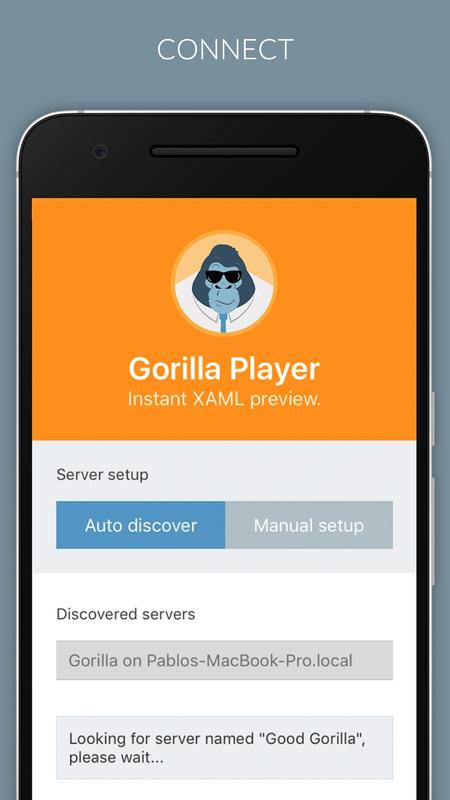
- #Gorilla player for mac driver#
- #Gorilla player for mac archive#
- #Gorilla player for mac full#
- #Gorilla player for mac series#
WARNING: Upgrading an OpenStack deployment is a non-trivial process and care
#Gorilla player for mac archive#
OpenStack Victoria is also provided via the Ubuntu Cloud Archive for OpenStack
#Gorilla player for mac full#
Please refer to the OpenStack Victoria release notes for full details of this OpenStack Telemetry - Ceilometer, Aodh, Gnocchi, and Panko.Ubuntu 20.10 includes the latest OpenStack release, Victoria, including the Telegraf: agent for collecting and sending metrics and events from databases, systems, and IoT sensors.
#Gorilla player for mac series#
Prometheus and alert manager: monitoring system and time series database, available as both a snap at and as a deb package in Groovy.Grafana: feature rich metrics dashboard and graph editor, available as a snap at.Together with prometheus, prometheus alert-manager, and grafana, this trio forms the basis of a strong and reliable monitoring and alerting solution that can be deployed on Ubuntu systems. Groovy introduces the telegraf package, part of a well known logging, monitoring, and alerting stack (LMA).
#Gorilla player for mac driver#
Qemu added uring support in the 5.0 release, it can be used with the file-posix driver like aio=io_uring. It’s part of the samba-vfs-modules package. Samba added uring support in the 4.12.0 release in the form of a VFS module. For the time being, we have qemu and samba using this support. This is a new mechanism for asynchronous I/O in the linux kernel. This adds SSL/STARTTLS support for proxied doveadm connections, IMAP transaction batching, enhanced event reporting, and numerous other fixes. Dovecot itself is updated from focal’s 2.3.7 to 2.3.11. Dovecot’s mail-stack-delivery transitional package was deprecated in focal, and dropped entirely in groovy. Libvirt 6.6 also supports the new virtiofs that was mentioned in the QEMU section above. See the upstream Changelogs for the many improvements and fixes since version 6.0 that was in Focal. Libvirt has been updated to version 6.6. One noteworthy new feature is virtiofs which allows better sharing of host file systems to the guest compared to the older 9p fs based approach. See the upstream changes for an overview of the many improvements. samba 4.12 has switched to GnuTLS for most of its cryptographic operations and that has a huge performance improvement in SMB3 encryption. adcli and realmd: many upstream fixes were applied to these packages, improving on the compatibility with current Active Directory changes. squid: the NIS basic authentication helper was removed ( LP: #1895694). Ubuntu 20.10 includes the latest version of GNOME, version 3.38, with an enhanced Activities Overview, User Experience improvements, better performance, and more. Ubuntu 20.10 is the first Ubuntu release to feature desktop images for the Raspberry Pi 4. Nftables is now the default backend for the firewall. Ubuntu 20.10 comes with refreshed state-of-the-art toolchain including new upstream releases of glibc 2.32, OpenJDK 11, rustc 1.41, GCC 10, LLVM 11, Python 3.8.6, ruby 2.7.0, php 7.4.9, perl 5.30, golang 1.13. Active State Power Management (ASPM) for improved power savings of PCIe-to-PCI devices. General Notification Queue for key/keyring notification, mount changes, etc.  Thermal pressure tracking for systems for better task placement wrt CPU core. Initial support for AMD Family 19h (Zen 3). Intel Gen11 (Ice Lake) and Gen12 (Tiger Lake) graphics support. X86 Enable 5-level paging support by default. USB 4 (Thunderbolt 3 protocol) support added. Btrfs RAID1 with 3 and 4 copies and more checksum alternatives. Airtime Queue limits for better WiFi connection quality. This includes numerous updates and added support since the 5.4 Linux kernel released in Ubuntu 20.04 LTS. Ubuntu 20.10 includes the 5.8 Linux kernel. New features in 20.10 Updated Packages Linux kernel If you need Long Term Support, it is recommended you use Ubuntu 20.04 LTS instead. Ubuntu 20.10 will be supported for 9 months until July 2021.
Thermal pressure tracking for systems for better task placement wrt CPU core. Initial support for AMD Family 19h (Zen 3). Intel Gen11 (Ice Lake) and Gen12 (Tiger Lake) graphics support. X86 Enable 5-level paging support by default. USB 4 (Thunderbolt 3 protocol) support added. Btrfs RAID1 with 3 and 4 copies and more checksum alternatives. Airtime Queue limits for better WiFi connection quality. This includes numerous updates and added support since the 5.4 Linux kernel released in Ubuntu 20.04 LTS. Ubuntu 20.10 includes the 5.8 Linux kernel. New features in 20.10 Updated Packages Linux kernel If you need Long Term Support, it is recommended you use Ubuntu 20.04 LTS instead. Ubuntu 20.10 will be supported for 9 months until July 2021. 

These release notes for Ubuntu 20.10 (Groovy Gorilla) provide an overview of the release and document the known issues with Ubuntu and its flavours. Groovy Gorilla Release Notes Introduction







 0 kommentar(er)
0 kommentar(er)
